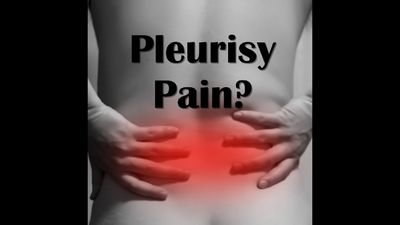Pleurisy, also known as pleuritic chest pain, is a disorder in which the pleura, the thin, two-layered layers of skin and muscle tissue that line the chest wall, become inflamed.

One pleura layer of tissue envelops the lungs while the second pleura layer lines the inner chest cavity. Pronation and an increased permeability of capillaries contribute to the development of these folds, which results in a condition called pleuritis.
Some of the primary causes of pleurisy are obesity, prolonged standing, or excessive exertion. However, the exact cause of this condition is not well understood.
The first sign of pleurisy is usually pain on breathing, although some people experience pain while walking and lifting objects. Pleural effusion is caused when fluid collects under the pleura and causes a dry, itchy feeling. This feeling usually disappears after about two weeks, but is present on examination.
As the disease progresses, symptoms progress over time. Some of the symptoms include:
Chest discomfort, which can range from mild to severe, can also be experienced. Other symptoms include:
Chest pains and shortness of breath are common. These symptoms, particularly chest pain, can be confused with heartburn, which is the burning sensation that occurs when food regurgitates out of your stomach. Heartburn, on its own, will not cause chest pain.
In addition, if you have been exercising, you may feel an intense pain in the chest. This pain is usually relieved by sitting down. However, if you have been lying in bed for a few hours, you may experience severe pain in the chest, as the pain will be aggravated by the movement and heaviness of the body.
If left untreated, the condition may worsen. Because the symptoms of pleurisy can be so intense, patients often find it difficult to work in light and airy conditions.
Although the exact cause of pleurisy is not known, treatment options can be implemented. If you have symptoms but do not have an underlying health condition, you should seek medical attention.
Treatment of pleural effusion is dependent on the severity of the symptoms.

Medications can help reduce the symptoms of pleurisy. However, surgery, whether through a neurectomy or a balloon angioplasty, is used only as a last resort. Sometimes, medication is effective in preventing further progression of the condition.
Nonsteroidal anti-inflammatory drugs (NSAIDs) are often used in the relief of pain and swelling. Corticosteroids, cortisone and beta-agonists, can also be used.
Steroids can be used in the same way as steroid treatment methods, as long as there are no underlying medical conditions. However, steroids may cause additional side effects that increase the risk of infection, clotting of the blood, and possible damage to the lung.
Steroid treatment options are usually reserved as a last resort because they can cause serious side effects. Steroid drugs are more appropriate for cases that have not responded to non-steroidal anti-inflammatory treatments.
Another option available is surgery to remove the affected area, although surgical procedures are only recommended in cases where surgery is the only solution. If surgery is necessary, the procedure is not considered a cure but an initial measure to provide symptom relief. Surgical procedures are also used to improve circulation, alleviate pain, and reduce inflammation.
Surgery is an invasive procedure, and patients should be prepared for the procedure. Painkillers should be taken, and a breathing mask, oxygen mask and mouthpiece will be provided. The procedure may be done under general anesthesia, although this type of anesthesia has been found to be dangerous and not generally used for pleurisy removal.
There are other treatment options that should be considered. Herbs, creams and lotions, or injections, can be applied topically to the affected area. These creams are sometimes combined with an oral antibiotic in order to achieve greater relief. Creams, ointments and suppositories can also be applied topically.
Symptoms of pleurisy vary from person to person. Some people are prone to having more frequent bouts than others, while others experience less pain.